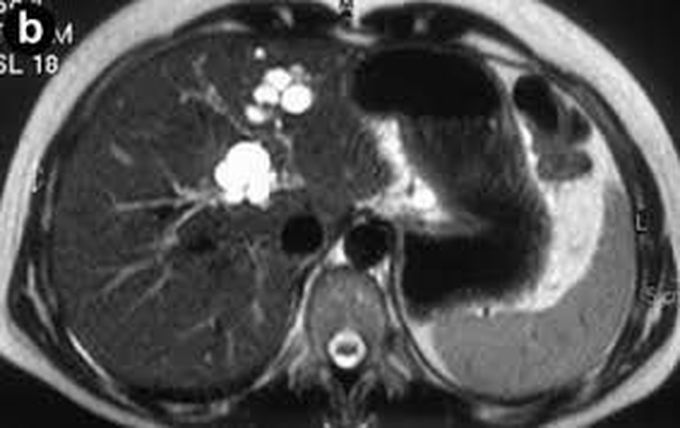


Causes of carolis disease
Causes Caroli disease and Caroli syndrome are thought to be genetic conditions. Caroli disease usually occurs sporadically, but has been reported to follow autosomal dominant inheritance in some families. Caroli syndrome, on the other hand, is associated with genetic changes (mutations) in the PKHD1 gene. This gene makes a protein that helps build the bile ducts as well as the kidneys. Mutations in this gene are also associated with a kidney condition called polycystic kidney disease. Since this disease has been linked to Caroli syndrome, it may be that PKHD1 is linked to Caroli disease, although it is not certain. Recessive genetic disorders occur when an individual inherits a non-working gene from each parent. If an individual receives one working gene and one non-working gene for the disease, the person will be a carrier for the disease, but usually will not show symptoms. The risk for two carrier parents to both pass the non-working gene and, therefore, have an affected child is 25% with each pregnancy. The risk to have a child who is a carrier, like the parents, is 50% with each pregnancy. The chance for a child to receive working genes from both parents is 25%. The risk is the same for males and females. People who are related (consanguineous) have a greater chance of being carriers for the same condition and have an increased chance of having a child with a recessive condition. Dominant genetic disorders occur when only a single copy of a non-working gene is necessary to cause a particular disease. The non-working gene can be inherited from either parent or can be the result of a mutated (changed) gene in the affected individual. The risk of passing the non-working gene from an affected parent to an offspring is 50% for each pregnancy. The risk is the same for males and females.

